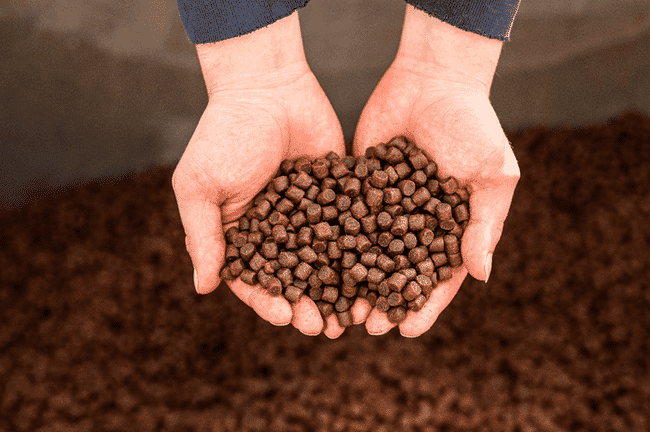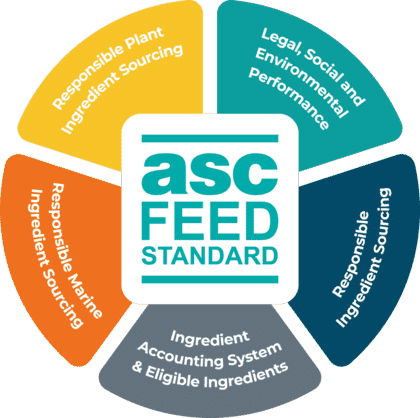
The Aquaculture Stewardship Council (ASC) - an aquaculture certification organisation - is on a mission to transform the industry towards more environmentally and socially responsible practices, aiming to use efficient market mechanisms that create value across the supply chain.
A key part of achieving this goal involves ensuring enough responsibly produced feed is available worldwide. With more than 70 percent of farmed seafood (excluding algae) requiring feed, this aspect of the industry carries some of aquaculture’s biggest potential impacts.
Life cycle assessments indicate that feed can account for up to 90 percent of environmental impacts of fed aquaculture production. Additionally, more than 90 percent of those impacts typically occur during the production and harvesting of raw materials for feed - through deforestation, land conversion, fisheries management, agricultural practices and more.
To put it simply: responsible aquaculture requires responsible feed.
Redefining responsible feed for aquaculture
The ASC Feed Standard contributes to more responsible seafood farming practices globally by making sure every feed ingredient used by certified feed mills is risk assessed for impacts, and best practices in feed supply chains are recognised.
Feed ingredients have different environmental and social impacts depending on the type of ingredient, location and production method. For example: Soy may have deforestation and land conversion risk; other plant ingredients may risk ecosystem conversion; and the use of fishmeal and fish oil risks overexploitation of wild fish populations.
The ASC Feed Standard requires risk assessments for all majority feed ingredients (greater than 1 percent inclusion), but to set targets and make progress towards more responsible feed, greater traceability, transparency and supply chain collaboration is required.
Driving positive change
To receive ASC certification, feed companies must meet requirements across five principles:

© ASC
- Legal, social, and environmental performance
The feed mill must have a management system in place to implement the ASC Feed Standard, ensuring they operate legally, and in a socially and environmentally responsible manner. - Responsible ingredient sourcing
The feed mill must source its ingredients responsibly, including implementing a Supplier Code of Conduct and carrying out due diligence on ingredient manufacturers and primary raw material production. - Ingredient Accounting System and Eligible Ingredients
The feed mill accounts for eligible ingredients input and feed output by implementing an ingredient in-coming and out-going accounting system and is transparent on product characteristics. - Responsible marine ingredient sourcing
The feed mill must source its marine ingredients responsibly and show that it is working towards increasing the majority sustainability level (MSL) of its whole fish marine ingredients. - Responsible plant ingredient sourcing
The feed mill must source its terrestrial plant ingredients responsibly, working towards a deforestation and land conversion-free supply chain by means of a public commitment, followed by a public action plan.
Through certified feed mills meeting these requirements, the ASC Feed Standard addresses and contributes to numerous UN Sustainable Development Goals (SDGs), such as Clean Water and Sanitation, Life Below Water, and Life On Land.
Positive impact for the planet and people
The ASC Feed Standard aims to facilitate greater responsibility within the aquaculture industry, encouraging greater transparency and traceability in feed supply chains.
Skretting, Thai Union and Vimifos are in the leading pack of feed companies that have already achieved ASC Feed Standard certification. With more feed mills currently undertaking the audit process, the global spread of more environmentally and socially responsible feed production is growing.
To highlight just how important this is for aquaculture’s future, ASC is hosting a panel discussion about the positive impacts of its Feed Standard at Seafood Expo Global Barcelona, with guest speakers from along the supply chain including Skretting, Thai Union and New England Seafood.
The event, ‘Feed Responsibly: Responsible aquaculture requires responsible feed’, will take place on Wednesday 24 April at 14:00-14:45 CET.
Further information and registration for the event can be found here.




